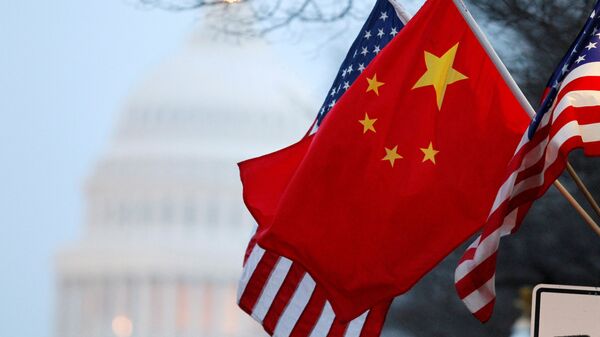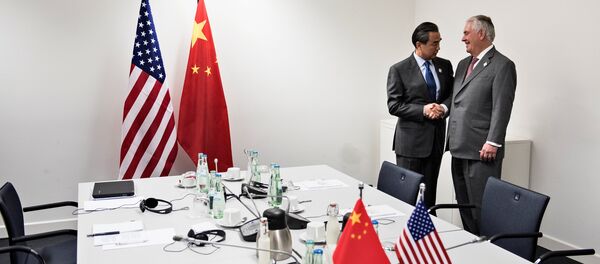Speaking before the Senate Armed Services Committee on Tuesday, General Joseph Dunford, chairman of the Joint Chiefs of Staff, called for an expansion in military spending to "maintain a competitive advantage" over Beijing.
Commenting on the remark, Broinowski pointed out that there is nothing new about it since a number of Washington-based think tanks have maintained a series of strategic studies suggesting that China is going to be a significant threat to US national interests between 2015 and 2025.
The analyst explained that the idea itself originally comes from a strategy to continue US dominance into the 21st century, which in particularly included the pivot to Asia and to the Indo-Pacific region by the Barack Obama administration in 2011.
Furthermore, Broinowski dismantled the term "national security" in the context of Dunford’s remark, saying that in fact it is being used as a "euphemism."
"What it really means is US global interests and control of resources and geo-strategic checkpoints around the world to ensure US dominance. Actually China is not a threat to US national security or its borders or its territory, but to those broader interests," Broinowski said in an interview with Radio Sputnik.
Commenting on the "Chinese threat," the analyst said it is more to do with the economic infrastructure project China is setting up in Eurasia, including the Asian Infrastructure Investment Bank (AIIB), the Shanghai Cooperation Organization (SCO) jointly with Russia and the billions of dollars it is investing in the One Belt One Road project.
According to him, control of the distribution of resources is also the main factor behind the ongoing US-China tensions over the South China Sea. The region has enormous oil and gas resources and it is also a major transportation corridor for Chinese fossil fuels and goods, and Beijing’s activities in the South China Sea, including the construction of artificial islands, are aimed at securing control of the distribution of those resources.
"The US traditionally maintains control over that distribution through its allies, including South Korea, Japan, Taiwan and Australia. … China is trying to get more sovereignty over those trade corridors," Broinowski said.
'Russia and China Together'
As suggested earlier this year, Dunford said that Moscow was the greatest threat to US national security; thus this recent shift towards Beijing may be remarkable. However, according to the expert, it does not mean getting Russia out of the picture.
"It’s probably more accurate to say Russia and China together because they’re working so closely now both economically and militarily. However, China has a huge population and an increasingly huge economy, probably eclipsing the US economy in many regards. China is expected to be a serious contender for hegemony in the region, not globally, but at least in the region by that estimated time point," Broinowski pointed out.
Finally, he touched upon the possible consequences of Dunford’s remark on the Washington-Beijing dialogue. According to Broinowski, it will not have a serious negative effect, but at the same time the US is unlikely to make China change its strategy.




